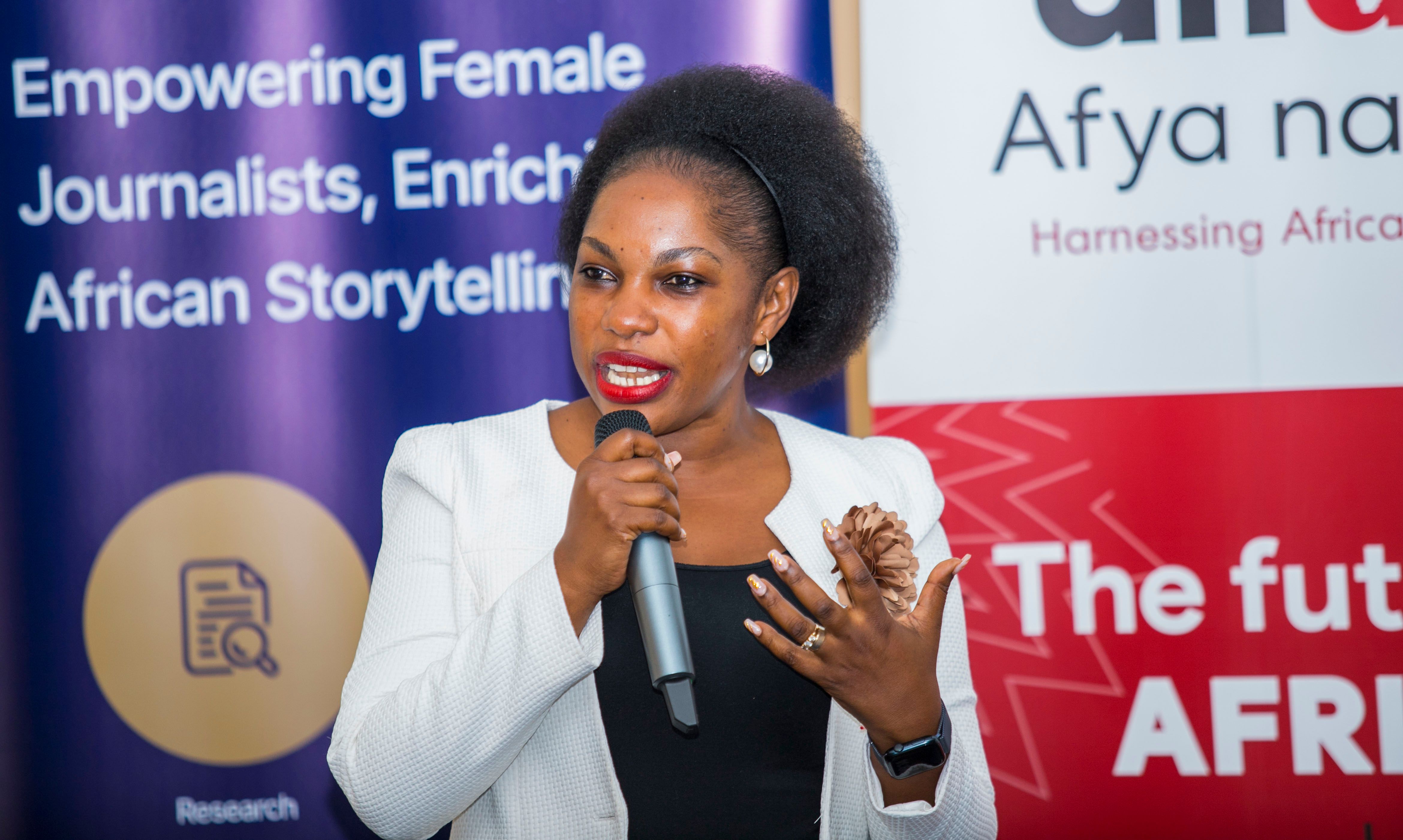Earlier this month, I had the distinct honor of attending and facilitating at a transformative SRHR media fellowship that brought together journalists, advocates, comms experts and policy influencers from across Africa. The fellowship served as a crucial platform fostering collaboration, enhancing reporting skills and reimagining the role of the media in driving forward the continent’s SRHR agenda.
As I stood before the team of passionate journalists, I couldn't help but feel a sense of excitement and purpose. The theme of our discussion was clear: the role of female journalists in advancing Sexual Reproductive Health and Rights (SRHR) in Africa; a topic that’s close to my heart, and deeply resonates with me.
Across Africa, sexual and reproductive health and rights remain deeply intertwined with issues of gender equality, access to education, poverty reduction, and human rights. While significant strides have been made, many challenges persist: from restricted access to contraceptives and safe abortion services, to deeply rooted cultural taboos, to the disproportionate impact of SRHR issues on women and girls in rural or underserved communities.
In this landscape, the media holds a potent tool: the power to inform, challenge, and shift societal norms.
And within this space, female journalists are uniquely positioned to lead.
Storytelling has long been a potent tool for social change, and SRHR issues are no exception. Female journalists, with their unique perspectives and experiences, can humanize complex SRHR issues, challenge harmful gender norms, and amplify the voices of marginalized communities. By sharing the stories of women and girls affected by SRHR issues, female journalists can raise awareness, spark conversations, and inspire action.

One of the key messages I shared during my presentation is that representation shapes narrative. Female journalists bring a lived understanding of the complex layers that define womanhood on the continent - from navigating reproductive health care, to managing menstruation stigma, to balancing motherhood with careers.
Female journalists don't just tell SRHR stories — they humanize them. They give voice to the girl child denied access to education because of early pregnancy, to the woman fighting for access to family planning in a conservative village, to the survivor of sexual violence demanding justice and dignity.
Their reporting often goes beyond statistics, uncovering the human realities that policies must respond to.
Throughout the fellowship, one truth echoed loudly: reporting on SRHR in Africa is not just about relaying facts — it is a form of activism. In many regions, journalists face backlash, censorship, or societal resistance when covering issues deemed taboo.
This is especially true for women who dare to challenge patriarchal norms and bring rather concealed SRHR topics into public discourse.
And yet, from Uganda to Nigeria, Kenya to Southern Africa, we heard from female journalists who continue to push boundaries - producing investigative documentaries on unsafe abortions, spotlighting menstrual hygiene challenges, and amplifying voices of the marginalized, despite threats and backlash.
Their courage reaffirms the essential role of the media in protecting rights and promoting accountability.
To empower female journalists to drive change on SRHR issues, we need to provide them with the tools, training, and support they need to tell these complex stories. This could be in the form of capacity-building programs that focus on SRHR reporting, gender-sensitive journalism, and storytelling techniques that can help female journalists develop the skills they need to tackle these issues.Pairing female journalists with experienced mentors and providing support can help them navigate the challenges of SRHR reporting. Creating opportunities for them to connect with other SRHR professionals, policymakers, and advocates can also help them build relationships and stay informed about the latest developments in the field.
As the fellowship concluded, one sentiment remained clear: the advancement of SRHR in Africa is not a solo endeavor — it is a collective responsibility. And within that collective, female journalists are not just narrators of the African SRHR journey, they are catalysts of change.
By centering their voices and supporting them to tell these complex stories, we move closer to a future where every African - regardless of gender, location, or status — can access the full spectrum of their sexual and reproductive health rights with dignity.
The pen, indeed, remains mightier - and when wielded by women committed to justice, it becomes unstoppable.
